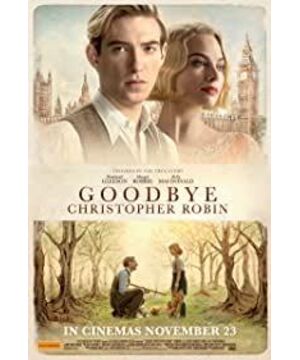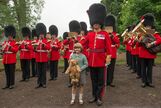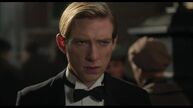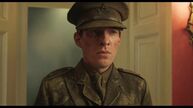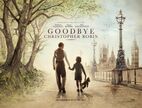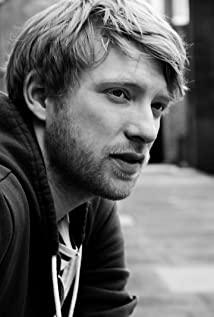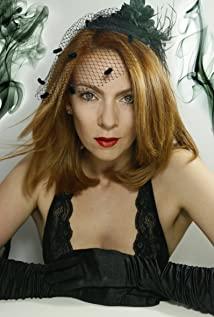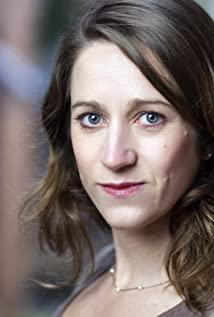Text: The little Trojan horse under the scorching sun
There are many movies describing father-son relationship, the classic one is like "Knock on the Door when Happiness", Will Smith and his son show their true feelings, but more of them tend to be inspirational, insisting that "American Dream" will be rewarded as long as you work hard; "Big Fish" "The estrangement between father and son arises from his father's unrestrained desires, and the repair of the father-son relationship is finally his father's bizarre, more fanciful and adventurous.
And "Goodbye, Christopher Robin" is even more tender (hereafter referred to as "Goodbye, Robin"). The tone of the whole film is soft, paving the way for warmth from the very beginning, but obviously the director's ambition goes far beyond telling about father and son How the relationship between them has become tense, how to ease the understanding, and also want to include the damage and healing of the war to the souls of the survivors.
Christopher Robin is Winnie the Pooh's partner, yes, the bear who loves honey very much. He once and his friends: Tigger, Piglet, Donkey, brought countless children a happy childhood. , "Winnie the Pooh" original author, British writer AA. Milne is the father in the film.
At the beginning of the film, there is a concise introduction to the timeline of the story. A letter broke the tranquility in the manor deep in the forest. Milne threw the ball that he used to play with his son towards the camera. The air burst, and the camera switched to the battlefield. For a time, the paradise transformed into a purgatory on earth. The corpses were scattered everywhere, attracting countless buzzing flies, and the sound of guns and guns in the distance. Milne in military uniform hurried away, and as soon as he opened the door, the picture turned out again. It was a jubilant reception. There was no trace of war at all, only the shadow of Milne's psychology.
This is one of my favorite scenes in the film. It is a beautiful and fast cut. It not only brings the audience back to the starting point of the flashback, but also explains that the background time of the story is after World War I. It also throws away the contradictions surrounding the whole film from the very beginning. Out: Milne's Post Traumatic Stress Disorder (PTSD).
Winnie the Pooh was born in the interaction between father and son. It was a gift from the father to the son. When the gift deteriorated and caused irreparable damage to the son's growth, the estrangement between the father and son also became tense. .
The director uses a larger story to describe the time when the father and son are alone together and the idea of writing Winnie the Pooh into a book. The rhythm is generally cheerful, and the father and son who have been estranged since childhood are drawn closer together. They go for a walk in the forest together, fantasy Story after story, naming my son's dolls and doing woodworking together. The director attempts to use the charm of nature and fragmented warm memories to build a good memory between father and son.
Using almost the same amount of space to describe the situation after the book was published, the father and son were separated again, and they were walking in the city where singing and dancing were prosperous to promote the new book. Instead, the image of Christopher Robin in the book caters to the needs of the public and the interests of publishers. For an 8-year-old child, the work schedule is full. The worst thing is that the father and son are alienated again. Not as cosy as before.
The completion of the new book in "Goodbye, Robin" has two meanings. On the one hand, the process of completing the new book is also a gift from the son to the father. It is a journey of healing. It was because of this that he could see the power that Winnie the Pooh brought to people in pain.
On the other hand, the son's happy time with his father was broken by the fame and fortune brought by the release of the new book, and even after he went to school, he was excluded and bullied because he "unintentionally" became a book person , This is the beginning of the son's resentment of Winnie the Pooh. How good the time with his father was, how strong the anger was in his heart, so that choosing to join the army to get rid of the shadow of Christopher Robin became the happiest thing for him.
The father, who has been tortured by PTSD for a long time, cannot express the inner suffering he has endured, and he cannot express the ultimate purpose of the book. It seems that he will never be able to find his father's love, and he cannot even find his true son, nor can he understand his father's difficulties. A person with "defects" seems to have no possibility of reconciliation, but this relationship is very rare and natural harmony handled by the director.
The story goes back to the beginning. The parents who received the letter received the "bad news" and began to narrate normally. How the son's condition on the battlefield after joining the army was not shown in pictures, but his understanding of his father's good intentions began on the battlefield. There is no doubt about it, and even if it was just carried over with words, it doesn't feel tough at all.
Of course, the film "Goodbye, Robin" is not perfect. Maybe the director wants to express too much, so that the handling of several characters and relationships makes people unsatisfied.
Mother, this role seems to be dispensable. She likes to mingle with feasting and feasting. She doesn't have the noble thoughts of her father. She doesn't care about her son since he was born, but this role is indeed indispensable. The catalyst for the father-son relationship, the arrogant and domineering mother, did not explain clearly how to change later, and the emotional leap seemed a little big.
Nanny, this is a very important role, because the nanny takes care of the little boy since he was born. The relationship between these two people is deeper than that between the biological parents. However, this decades-long friendship has not been Without the detailed description of the director, we can only get a little emotional transmission from the nanny when he questioned his father, and even so, we can be moved.
These "important emotions" that have been taken with a single stroke are like scratching the itch, and people can't help but say that they are not enough.
The meaning of the title of "Goodbye, Christopher Robin" will be clear at a glance after the film ends. For my son, the war (in terms of time, it was during World War II) is growth, and it is only after experience. His own childishness understands his father's inner pain, the hope pinned in the book, and his deep love for him.
I don't know why, after watching the film, I always remember Zhu Ziqing's "The Back". This text, which I have recited countless times, is the father's endless and simple love for his children. In "The Back", the father staggers to buy oranges Doesn't it coincide with the figure of the father playing with his son in the forest and writing in the middle of the night in "Goodbye, Robin"?
(First published on China Film Index)
View more about Goodbye Christopher Robin reviews


